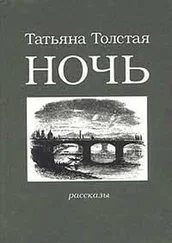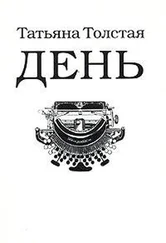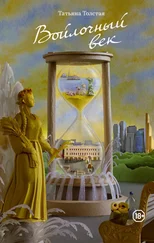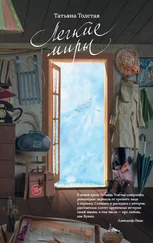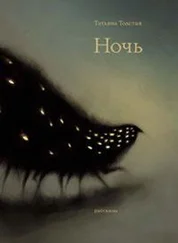But, for some reason, it must be done.
You must walk in the cold to the market—it’s always dim there, never warm there. Past the tubs with pickled things; past the cream and the crème fraîche, redolent of girlish innocence; past the artillery depot of potatoes, radishes, and cabbages; past the hills of fruit; past the signal lights of clementines—to the farthest corner. That’s where the chopping block is; that’s where the blood and the ax are. “Call Russia to the Ax.” To this one right here, digging its blade into a wooden stump. Russia is here, Russia is picking out a piece of meat.
“Igor, chop up the legs for the lady.” Igor lifts his ax: hack! Lays out the white cow knees, cleaves the shanks. Some buy pieces of the muzzle: lips and nostrils. And those who like pork broth—they get little pig feet, with baby hooves. Holding one of those, touching its yellow skin, is creepy—what if it suddenly shook your hand in return?
None of them are really dead: that’s the conundrum. There is no death. They are hacked apart, mutilated; they won’t be walking anywhere, or even crawling; they’ve been killed but they are not dead. They know that you’ve come for them.
Next it’s time to buy something dry and clean: onions, garlic, roots, and herbs. And back home through the snow you go: crunch, crunch. The frosty building entryway. The lightbulb has been stolen again. You fumble in the dark for the elevator button; its red eye lights up. First the intestines appear in the elevator’s wrought-iron cage, then the cabin itself. Our ancient Saint Petersburg elevators are slow; they click as they pass each floor, testing our patience. The chopped-up legs in the shopping bag are pulling your arm down, and it seems as if at the very last moment they’ll refuse to get into the elevator. They’ll twitch, break free, and run away, clacking across the ceramic tile: clippity-clop, clippity-clop, clippity-clop. Maybe that would be for the best? No. It’s too late.
At home, you wash them and throw them into the pot. You set the burner on high. Now it’s boiling, raging. Now the surface is coated with gray, dirty ripples: all that’s bad, all that’s weighty, all that’s fearful, all that suffered, darted, and tried to break loose, oinked and mooed, couldn’t understand, resisted, and gasped for breath—all of it turns to muck. All the pain and all the death are gone, congealed into repugnant fluffy felt. Finito. Placidity, forgiveness.
Then it’s time to dump this death water, to thoroughly rinse the sedated pieces under a running faucet, and to put them back into a clean pot filled with fresh water. It’s simply meat, simply food; all that was fearsome is gone. A calm blue flower of propane, just a little bit of heat. Let it simmer quietly; this is a five- to six-hour undertaking.
While it cooks, you can take your time preparing the herbs and the onions. You’ll be adding them to the pot in two batches. First, two hours before the broth is done cooking, and then, again, an hour later. Don’t forget to stir in plenty of salt. And your labor is done. By the end of the cooking cycle, there will have been a complete transfiguration of flesh: the pot will be a lake of gold with fragrant meat, and nothing, nothing will remind us of Igor.
The kids are here; unafraid, they are looking at the pot. It’s safe to show them this soup—they won’t ask any tough questions.
Strain the broth, pull the meat apart, slice it with a sharp knife, as they did in the olden days, in the age of the tsar, and the other tsar, and the third tsar, before the advent of the meat grinder, before Vasily the Blind, and Ivan Kalita, and the Cumans, and Rurik, and Sineus and Truvor, who, as it turns out, never even existed.
Set up the bowls and the plates and place some fresh-pressed garlic in each one. Add the chopped-up meat. Use the ladle to pour over it some thick, golden, gelatinous broth. And that’s that. Your job is done; the rest is up to the frost. Carefully take the bowls and plates out to the balcony, cover the coffins with lids, stretch some plastic wrap over them, and wait.
Might as well stay out on the balcony, bundled up in your shawl. Smoke a cigarette and look up at the winter stars, unable to identify a single one. Think about tomorrow’s guests, remind yourself that you need to iron the tablecloth, to add sour cream to the horseradish, to warm the wine and chill the vodka, to grate some cold butter, to place the sauerkraut in a dish, to slice some bread. To wash your hair, to dress up, to do your makeup—foundation, mascara, lipstick.
And if you feel like senselessly crying, do it now, while nobody can see you. Do it violently, about nothing and for no reason, sobbing, wiping away your tears with your sleeve, stubbing out your cigarette against the railing of the balcony, not finding it there, and burning your fingers. Because how to reach this there and where this there is—no one knows.
It’s December, 4:00 p.m., and getting dark. I am sitting in the student cafeteria. The space is enormous; its ceiling disappears into the dim light and cigarette smoke somewhere around the third floor. It’s the mid-1990s and they haven’t yet prohibited smoking in American public places, but they soon will. In the halls and in the classrooms, it is, of course, already forbidden. The professors’ lounge has also been sterilized. But in this dingy student cafeteria it’s still allowed, and so all the professors—the ones who haven’t yet signed on to a healthy lifestyle—eat, smoke, and conduct their student conferences right here.
“Life is but smoke and shadows,” as the sign over a gate that shall remain nameless proclaims. Smoke and shadows.
The food, of course, is god-awful. One popular dish is a chunky pasta we call “little horns” in my faraway, snowy homeland. It’s drowned in a yellow sauce, but not of egg—I’m scared to dwell on its provenance. They serve pale turkey meat, but it’s taken from parts nowhere near the bird’s bosom: if you poke around with a fork, you might find the trachea, which looks like a little tube; also some bits resembling knees, or skin with hair. Hopefully that’s just the comb, which doesn’t rest on the turkey’s head but hangs from its nose down to the neck. Lord, that is what You decided on the fifth day of Creation, and I am no judge of You. Here they serve, in all seriousness, canned pureed corn. Not to mention the tepid brown water they call “coffee,” although if you add some soy creamer it’s not that bad—quite potable, actually. I’m used to it.
At a table across the room from me is Eric. He’s an American. We’re having an affair.
I can’t say anything particularly good about Eric: he’s not all that handsome, his main virtues being his teeth and his height. I also like his rimless glasses and his fingers, lanky like those of an imaginary pianist. Alas, he’s no good at the piano, and all that he can extract from the instrument is “Chopsticks.”
I couldn’t even say whether he’s smart. I don’t have enough to go on. How can I gauge someone’s intellect if he doesn’t speak a lick of my mother tongue, which is Russian, and out of my country’s entire literary canon he has heard only of Uncle Vanya ? Not that I would claim to understand the first thing about what Eric does. He’s an anthropologist, specializing in the Pu Pèo people of Vietnam, an ethnic minority of just four hundred members. The Pu Pèo are part of a larger group called the Yi; well, not that large—eight million, living mostly in China. Out of China’s entire population it’s a pitifully small handful. The Yi people speak a number of different languages, including Nousu, Nisu, and Nasu. Just to keep things interesting. Yet Eric specializes not in the language but in the everyday life of this distant minority-within-a-minority. He’s traveled to their part of the world and brought back their national costume, their headdress (which resembles an overnight train window with the drapes drawn back), wooden bowls, and an exotic grain: buckwheat!
Читать дальше


